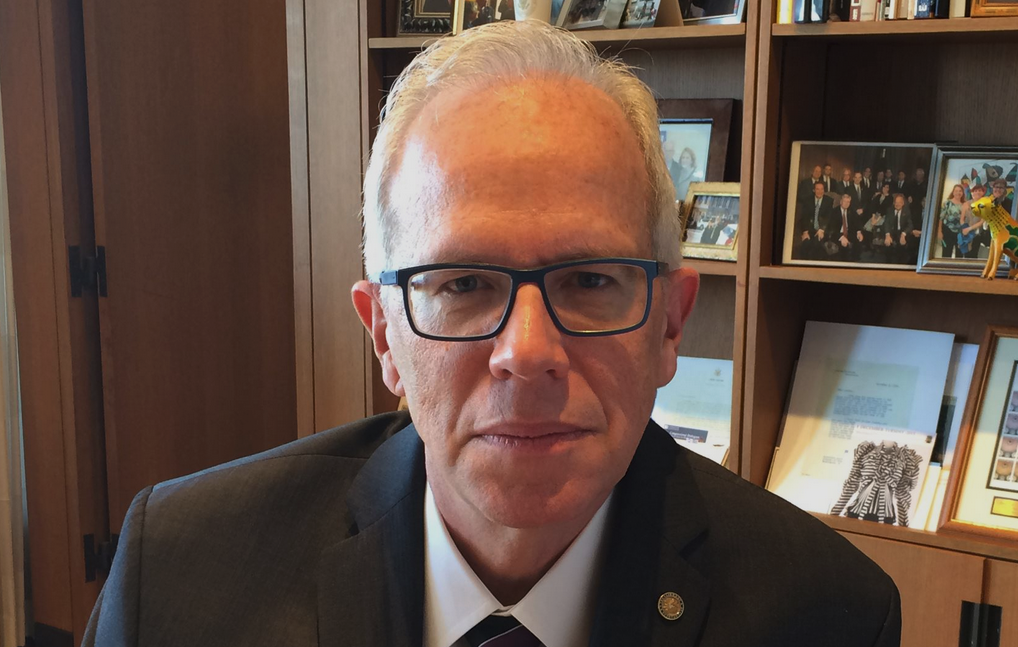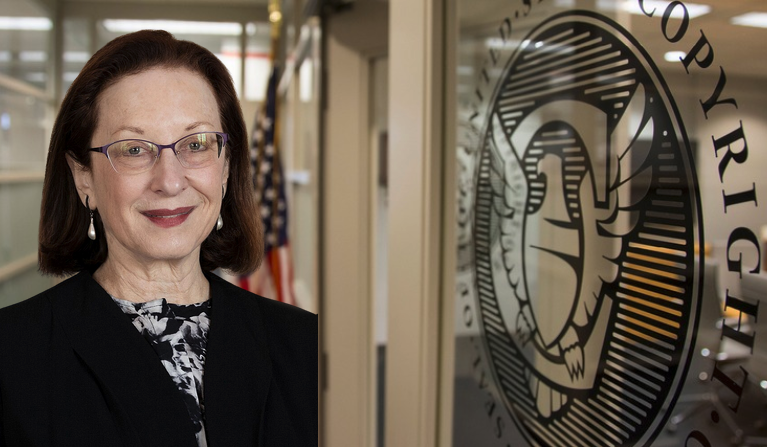After Trump Firings, Who Will Lead the Library of Congress? The Copyright Office? It's Complicated
After the shock firings of Carla Hayden and Shira Perlmutter, the future of the Library of Congress and the Copyright Office remains in flux.

In what critics are calling a brazen power grab, the Trump administration this week moved to install loyalists in key leadership roles at the Library of Congress and the U.S. Copyright Office. But in an unexpected twist, Trump's handpicked appointees appear to be iced out as of this writing, as a potentially complicated battle for control of the Library of Congress and the U.S. Copyright Office is now underway.
The drama began on the evening of May 8, with the shock firing of Librarian of Congress Carla Hayden, and escalated with the dismissal of Register of Copyrights Shira Perlmutter on May 10. Trump then tapped his former criminal attorney Todd Blanche, now Deputy Attorney General, to be the Acting Librarian of Congress and DOJ deputy attorney general Paul Perkins to be Acting Register of Copyrights. A third administration official, Brian Nieves, a deputy in Blanche’s office, was tapped to be Acting Assistant Librarian.
But according to multiple reports, when two of those appointees showed up for work at the Copyright Office on the morning of May 12, staffers denied them entry.
That's because, while lawyers generally agree that Trump likely (although not certainly) has the authority to fire the Librarian of Congress, the administration apparently gave little thought to what would come next. As a result of Hayden's firing, Hayden's deputy, Robert R. Newlen, was by law automatically elevated to the role of acting librarian. And when Trump's replacements showed up, savvy library employees rejected their authority.
"As I understand it, the position of the Library staff is that the federal vacancies act, 5 USC 3345, does not apply to the Library of Congress, and therefore Trump does not have the authority to designate a new acting Librarian," Washington D.C.-based lawyer Jonathan Band told Words & Money. "So, they believe Newlen still is the acting Librarian."
Lawyers Words & Money spoke to agreed with the library staff's take that the president doesn't have the authority to remove Newlen, nor the authority to appoint an acting librarian to succeed him. Thus, unlike at other federal agencies, the Trump Administration's shock-and-awe campaign to dismantle the federal bureaucracy appears to have hit a wall at the Library of Congress. As of this writing, Newlen remains in charge, and Blanche remains in limbo, as congressional leaders and administration officials grapple with how to proceed.
According to a report in Politico, Senate majority leader John Thune said that “consultations” were ongoing, and that he expects “more discussions" in the coming week.
For his part, Newlen hasn't spoken out publicly since he became the Acting Librarian of Congress. But his actions have spoken volumes.
As multiple outlets have reported, Newlen has quietly held firm, telling staffers in a May 12 email that despite Trump's attempts to install new leadership at the Library of Congress and the Copyright Office, he was still in charge pending further instructions from Congress. If Newlen is somehow able to hold on and finish out Hayden's term, which has a little more than a year left, that would qualify as a best-case scenario for those who value the library and its mission, librarians told Words & Money.
Newlen has served at the Library of Congress for more than four decades in various roles and is highly respected and well-liked within the Library of Congress, and in the library community more broadly. While finding himself in the middle of this raw political battle is probably not where he wants or expected to be at this point in his career, he shows no sign of backing down. The situation remains fluid, however.
The Register of Copyrights

As for the Copyright Office, multiple lawyers told Words & Money that Trump's firing of Shira Perlmutter is almost certainly illegal, as the president does not have the statutory or Article II authority to remove the register, nor to appoint an acting register. At the moment, that power belongs to Newlen as the Acting Librarian of Congress.
Trump and his allies could certainly ask that Newlen fire Perlmutter and appoint Trump's choice for a replacement. But it seems unlikely that Newlen would acquiesce to the administration's demands, as Perlmutter's performance as Register has been widely praised.
Meanwhile, at press time, the library has not responded to requests about Perlmutter's status. With multiple members of Congress questioning the president's authority to fire Perlmutter, there remains the possibility that talks could lead to her reinstatement. Failing that, lawyers say that Perlmutter would have a strong case if she were to sue.
But given the somewhat odd structure of the Library of Congress and the Copyright Office, litigation would not be without its challenges, lawyers note. Furthermore, the administration has a much easier and quicker path forward: Trump can nominate a new Librarian of Congress, and push through a quick senate confirmation. Once confirmed, the new Librarian of Congress could then remove Perlmutter, and install a new Register of Copyrights.
Trump's actions also raise a larger question about the future of the Copyright Office, however: Will it stay within the Library of Congress?
Overlooked in the outrage over Perlmutter's firing is that Congress, with the support of the publishing industry, voted to hand the Copyright Office over to Trump in 2017, during the president's first term. The Register of Copyrights Selection and Accountability Act would have given Trump the power to appoint the Register of Copyrights for a 10-year, renewable term, subject to Senate confirmation, as well as the power to fire the Register at any time.
After rushing the bill through the house, largely, critics argued, to keep the newly appointed Carla Hayden from appointing the next register of copyrights after she removed then register Maria Pallante (who is now the president and CEO of the Association of American Publishers), the bill was ultimately blocked in the Senate.
Although that bill was limited to the appointment of the Register of Copyrights, the legislation followed a House Judiciary Committee policy proposal, overseen and supported by Pallante during her tenure as register, that backed the creation of an autonomous Copyright Office, with the register being a presidential appointee.
Could the current standoff lead to those proposals being revived? Furthermore, with concerns in the publishing community that Perlmutter was fired because she led a Copyright Office study that was critical of Big Tech's AI practices and supportive of creator's rights, would the publishing industry once again support handing control of the Copyright Office over to Trump?
Looking back, the opposition of the Library Copyright Alliance, a group of national library organizations, to that 2017 bill seem instructive today.
"Why Congress would voluntarily cede its own confirmed Librarian’s authority to select and oversee a key Congressional advisor on copyright matters to the Executive Branch is hard to imagine," the LCA said of the 2017 bill. "It's also difficult to understand how the public or Congress itself would benefit from politicization of the Register of Copyrights' position."